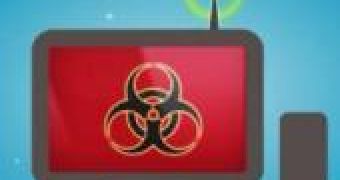Microsoft upped the ante in the war against the Rustock botnet, going after the cybercriminals that operated the zombie network of computers, which it believes to have either operated or still be operating out of Russia.
Having shut down the Rustock botnet in March 2011 through a collaborative effort involving the Microsoft's Digital Crimes Unit (DCU) as well as authorities and additional members of the security industry, the software giant’s focus has shifted on the people behind what was at one point the top source of spam worldwide.
A key part of the actions necessary to take down Rustock was related to shutting down IP address and domain names that were used to control infected PCs, also referred to as zombie computers.
“We have placed advertisements in two mainstream Russian newspapers, the Delovoy Petersburg in St. Petersburg and Moscow’s daily paper, The Moscow News,” revealed Richard Boscovich, Senior Attorney, Microsoft Digital Crimes Unit.
“By placing these quarter-page ads, which will run for 30 days, we honor our legal obligation to make a good faith effort to contact the owners of the IP address and domain names that were shut down when Rustock was taken offline.”
In addition to the advertisements, the Redmond company has also created the noticeofpleadings.com website. The software giant’s latest efforts are done because the necessity to provide notification of the actions for the Rustock takedown to the botnet’s operators.
Notices of the complaint and court orders have also been sent through snail mail and to the email addresses that defendants used when acquiring the IP addresses and domains that were then leveraged to control the infected computers that made up Rustock.
“Although history suggests that the people associated with the IP addresses and domain names connected with the Rustock botnet are unlikely to come forward in response to a court summons, we hope the defendants in this case will present themselves,” Boscovich added.
“If they do not, however, we will continue to pursue this case, including possibly within the Russian judicial system, if necessary. We remain firmly committed to taking action against not just the perpetrators of this botnet, but to disrupt digital crime globally to make the Internet safer for everyone.”
Estimates reveal that Rustock was comprised by as much as 1 million infected / zombie PCs at one point in time, and capable of sending in excess of 30 billion spam emails per day. The botnet has been offline since Microsoft and its partners took action in March.

 14 DAY TRIAL //
14 DAY TRIAL //